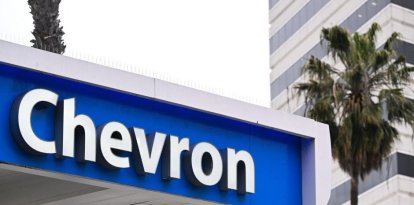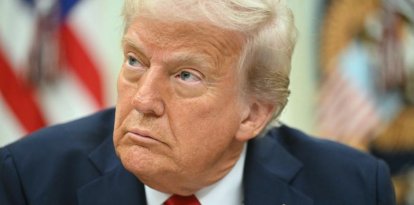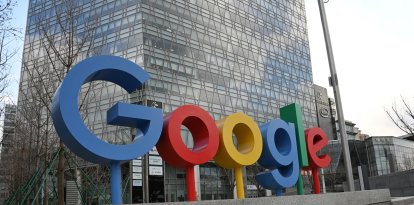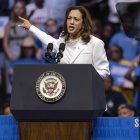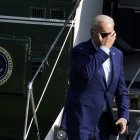Champion of the middle class? Kamala's subsidies and tax policies show her true corporate agenda
Institutes and experts point out that the administration handed out multi-billion dollar subsidies to big business, while hurting lower-income Americans with redistribution policies that benefited the wealthy, such as student debt forgiveness or high inflation.
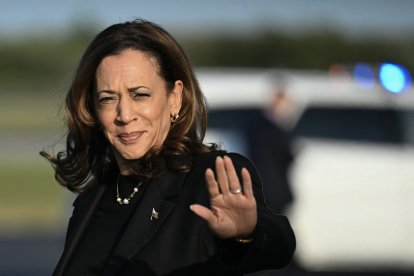
Kamala Harris
Two of the main points that the Democratic campaign is trying to push on the American people are that Kamala Harris is the champion of the middle class and will fight against the greed of big business.
Even the vice president herself made this assertion in the presidential debate, when the moderators asked her about the economic situation. Her answer, rather than a proposal, began with a self-definition: "I was raised as a middle class kid and I’m the only person on this stage that is about lifting up the middle class and working people of America." Donald Trump, by contrast, she said, wants to benefit the wealthy and big business.
Analyses from congressional institutes and committees, however, portray a very different picture of the Biden-Harris administration's mandate.
As for big business, while 10-year corporate subsidies in the first year of the Biden-Harris term hovered around $1.2 trillion, three years later they exceeded $2 trillion.
The House Budget Committee went so far as to describe it as a "Corporate Welfare Bonanza." In an analysis earlier this year, the representatives charged that the administration "unleashed a gush of corporate welfare, including crony tax breaks and subsidies for his preferred industries."
The commission members also pointed out that corporate income taxes are, in reality, taxes on citizens:
"Taxes on corporate income are paid by workers through lower wages, individuals through higher prices, and shareholders through lower returns – each of whom are also responsible for paying individual income taxes, including on income that was previously taxed at the corporate level," they said.
After criticizing other government plans, they conclude that "the tax code should not be used to pick winners and losers," but "should be used to provide the minimum level of revenues necessary for the government’s constitutional responsibilities in the least economically distorting way."
Too many subsidies, not enough (big) business
"Rather than trickle-down economics, this is a Niagara Falls of subsidies flooding from Washington to the president’s favored industries and corporations," asserted from the Cato Institute in a report on the nation's economy. Like the Budget Commission, they described it as a "Corporate Welfare Bonanza."
"Biden rails against big corporations, but he has given them colossal subsidies," they noted, and detailed that some of the big beneficiaries are electric vehicle companies, semiconductor companies and hydrogen companies.
The administration's big packages were the Infrastructure Investment and Jobs Act of 2021, which Cato details increased federal subsidies by $548 billion, the CHIPs and Science Act of 2022, which added $54 billion in subsidies, and the Inflation Reduction Act (IRA) of the same year, which awarded $868 billion in energy subsidies.
"Three-quarters of the benefits of the IRA are shared by just 15 large corporations, seven of which are foreign," quantifies a recent analysis by Reason magazine. Among the big beneficiaries are wind turbine manufacturers such as General Electric, Vestas and Siemens/Gamesa.
Taking from those who have the least, giving to those who have the most
While some of the companies with the most resources found the IRA most profitable, the same could be said, according to Reason, for consumers. Nearly four-fifths of taxpayers who claimed the benefits to purchase electric vehicles earned more than $100,000 a year.
One of the most criticized policies from the Biden-Harris administration is student debt forgiveness. Republicans, who successfully successfully challenged the forgiveness in court three times, say the proposal is unfair to those who did not go to college, who will cancel a commitment they made to others, and would benefit some of the country's wealthiest universities.
"Today is a huge victory for every working American who won’t have to foot the bill for someone else’s Ivy League debt," celebrated Andrew Bailey, Missouri's attorney general, after a district judge temporarily suspended the government's latest attempt to move forward with the forgiveness.
Inflation, a tax on the poor
The distribution of the Child Tax Credit (CTC), also did not benefit the middle or lower class, according to Reason.
Reason says the American Rescue Plan also hit the pocketbook of lower-income households: "In 2019, families earning over $100,000 claimed 44 percent of all nonrefundable benefits, while only 11 percent went to families earning under $40,000." Harris said she wants to expand this plan.
The Democrats' plan to revive the post-pandemic economy using public money to increase demand was one of the main drivers of inflation, an issue at the top of Americans' list of concerns this election cycle. In a country divided along party lines, the consensus on this point is nearly unanimous.
The inflation plaguing Americans affects, above all, the middle and lower classes, who face difficulty coping with the costs of products in the supermarket, at buying back-to-school supplies and when putting gas in their cars or looking for housing, among others. Those with less income or savings find it more difficult to cope with the generalized price increases.
RECOMMENDATION





